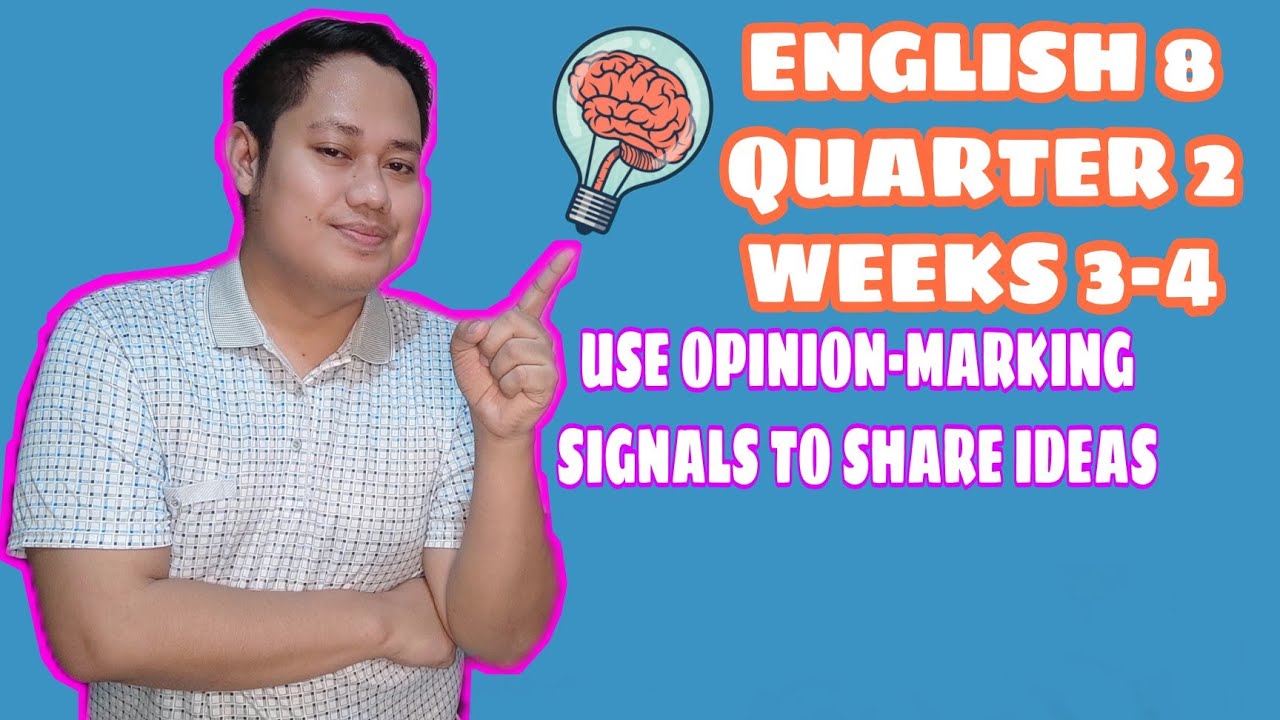Distinguishing FACT from OPINION
Summary
TLDRIn this engaging English lesson, Teacher Tell introduces students to the critical distinction between facts and opinions. By exploring definitions and providing clear examples, students learn to identify opinions, marked by personal expressions like 'I believe,' and facts that can be verified, such as 'the sun rises every day.' The lesson emphasizes the importance of supporting statements with evidence, using clues like historical events and statistics. With encouraging words, the teacher motivates students to practice these skills, highlighting the long-term benefits of investing in their learning.
Takeaways
- 😀 Understanding the difference between fact and opinion is crucial for evaluating information.
- 📖 A fact is a statement that can be verified and is universally true.
- 💭 An opinion reflects personal beliefs, feelings, or viewpoints.
- 📅 Facts can be supported by evidence such as dates, historical events, and scientific data.
- 🗣️ Common phrases to express opinions include 'I think,' 'I feel,' and 'perhaps.'
- 🔍 Identifying facts involves looking for verifiable statements that remain consistent.
- 🌍 Opinions are subjective and can vary from person to person.
- 📚 Practicing the distinction between fact and opinion enhances critical thinking skills.
- 🔑 Key indicators of a fact include statistical data and documented references.
- 💡 Engaging with diverse opinions can broaden understanding and perspectives.
Q & A
What is the main topic of today's lesson?
-The main topic is distinguishing facts from opinions and providing evidence to support statements.
How is a fact defined in the lesson?
-A fact is defined as a verifiable statement that is true and can be supported by evidence.
What example is given to illustrate a fact?
-The statement 'The sun rises and sets every single day' is given as an example of a fact.
What characterizes an opinion according to the lesson?
-An opinion expresses personal beliefs, feelings, or thoughts and is subjective in nature.
What is an example of an opinion provided in the transcript?
-The statement 'I believe that reading books is still the wisest thing to do' serves as an example of an opinion.
What clues can help identify a fact?
-Clues include time and dates, historical events, numbers and statistics, scientific data, names and places, references, and documents.
What expressions are suggested for stating personal opinions?
-Expressions such as 'I think,' 'I feel,' 'I suppose,' and 'maybe' are suggested for stating personal opinions.
Why is it important to distinguish between facts and opinions?
-It is important because it helps individuals make informed decisions about what to believe.
What encouragement does Teacher Tell provide at the end of the lesson?
-Teacher Tell encourages students to keep learning and emphasizes that the investment in education yields the best rewards.
How can understanding the difference between fact and opinion affect communication?
-Understanding the difference enhances clarity in communication and aids in critical thinking when evaluating statements.
Outlines

Cette section est réservée aux utilisateurs payants. Améliorez votre compte pour accéder à cette section.
Améliorer maintenantMindmap

Cette section est réservée aux utilisateurs payants. Améliorez votre compte pour accéder à cette section.
Améliorer maintenantKeywords

Cette section est réservée aux utilisateurs payants. Améliorez votre compte pour accéder à cette section.
Améliorer maintenantHighlights

Cette section est réservée aux utilisateurs payants. Améliorez votre compte pour accéder à cette section.
Améliorer maintenantTranscripts

Cette section est réservée aux utilisateurs payants. Améliorez votre compte pour accéder à cette section.
Améliorer maintenantVoir Plus de Vidéos Connexes
5.0 / 5 (0 votes)






